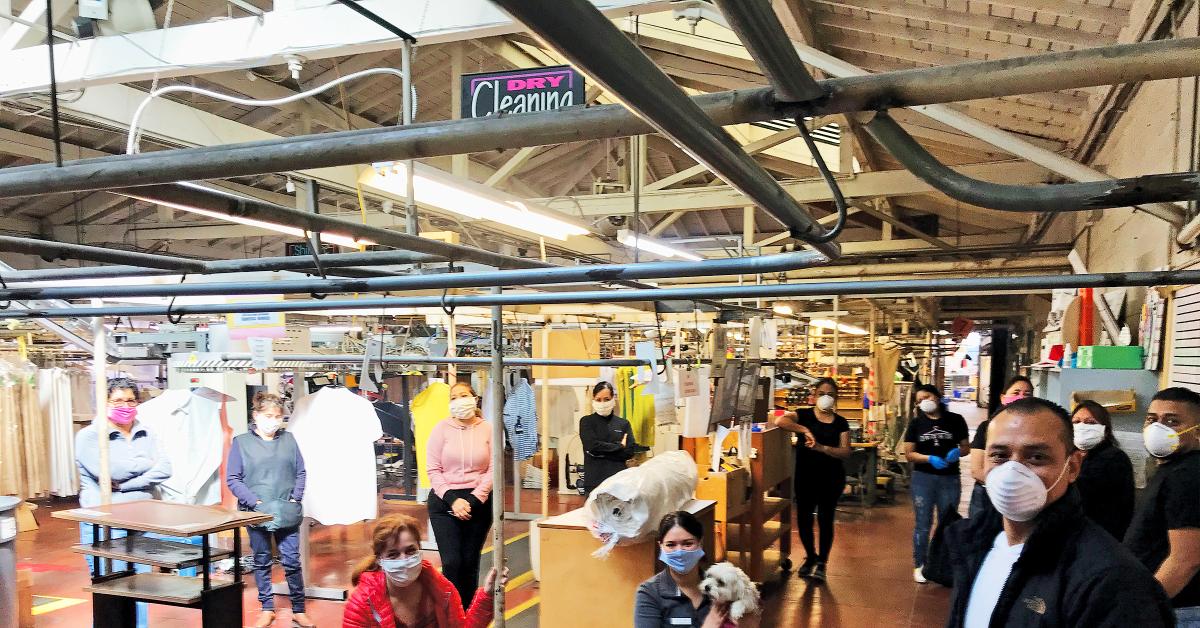CHICAGO — Most dry cleaners focus on the tools of their trade, honing their craft and making sure their staff has the tools they need to serve their customers. They are not experts in the arenas of liability, employment lawsuits or other legal matters. When cleaners neglect these areas, however, it could spell disaster should the unexpected happen.
In Part 1, we learned the value of being proactive regarding planning and having written procedures in place to avoid unpleasant experiences when it comes to employment law matters. We’ll now finish our look at this topic by examining what it takes to put proper legal protections in place.
ADVANTAGES OF A TEAM
For a business owner, the backing of a team can provide added peace of mind in matters of employment law.
“When I think about employment law, I think about how important it is as a business owner to have a good team of lawyers, accountants, HR, etc.,” says Sasha Ablitt, owner of Ablitt’s Cleaners, located in Santa Barbara, California. “We don't know what we don't know until it becomes an issue.”
It’s always a good idea to get regular updates from competent and knowledgeable counsel, she says.
The Ablitt family has been providing drycleaning services for generations. Gordon Ablitt, Sasha’s grandfather, fell in love with the daughter of a dry cleaner in Washington state where he worked. In the 1940s, the couple moved to Santa Barbara and bought a large drycleaning plant. In 1984, their son, Neil Ablitt, Sasha’s father, reopened the family business and, for the first time, named it after the family. In 2002, Sasha moved back from a life working “in corporate” to take over the operations.
Regarding employment law, she points out that every state has different laws that are constantly changing and being updated, so she recommends talking to a lawyer before implementing any of her advice offered here.
The first requirement, she says, is that any dry cleaner needs a company handbook.
“A well-designed handbook needs to include a clear description of a working code of conduct; expectations for both employees and management; work and break policies; vacation and sick time policies; holiday and overtime; safety communication, etc.,” she says. “There is just too much for any business owner to handle alone when it comes to government regulations.”
A responsible business owner must have these documents written and regularly updated to account for changes. Sometimes circumstances require the handbook be updated more than once a year, such as when sick time off was mandated in California, Ablitt adds.
A common mistake is when people think because they operate in a fair and ethical way, they are not at risk of having labor law issues.
“While it is commendable to operate in such a way, it does not mean you can expect people to see things the way you do,” she explains. “I feel that a business needs to always be looking for how something can be misunderstood, and constantly striving to clarify and improve. Communication is key.”
Ablitt’s Cleaners has employed many members of the Ablitt family over the years, which Sasha believes has made it even more important to have a handbook outlining acceptable behavior and clear policies for communicating.
“In my experience, it’s always the things that never occurred to me that become the biggest issues,” she says. “In this way, writing a company policy is not the end of the process, it is just the beginning. It amazes me how many times we revisit the policy every year and add small modifications and clarifications.”
Some chapters, such as workplace safety or sexual harassment prevention, become the focus of staff meetings, Ablitt explains. Having periodic meetings that discuss the handbook’s nuances helps to communicate the content to all staff members, highlight areas of potential misunderstanding and signal its importance to management. It can also bring up revisions that may not be so obvious.
Ablitt favors getting second and third legal opinions, if possible.
“I have the handbook reviewed by an HR firm that also performs HR audits, and I have a friend who is a lawyer review it for any omissions and general readability,” she says. “We also will ask questions of an HR lawyer we have access to via our employment liability policy. If you have that sort of coverage, you should look into what services are available to you.”
If this all seems like a lot, it is, she says.
“But we are a family business, and we want our staff to feel safe and taken care of,” explains Ablitt. “This framework in understanding the details of workplace policies must be addressed if we are going to create a successful business that is also a premier workplace.”
Employment law can be a scary topic, one easy for small-business owners to ignore, until a big problem arises, she says. By then, it can be too late to easily rectify it.
To read Part 1, go HERE.
Have a question or comment? E-mail our editor Dave Davis at [email protected].
